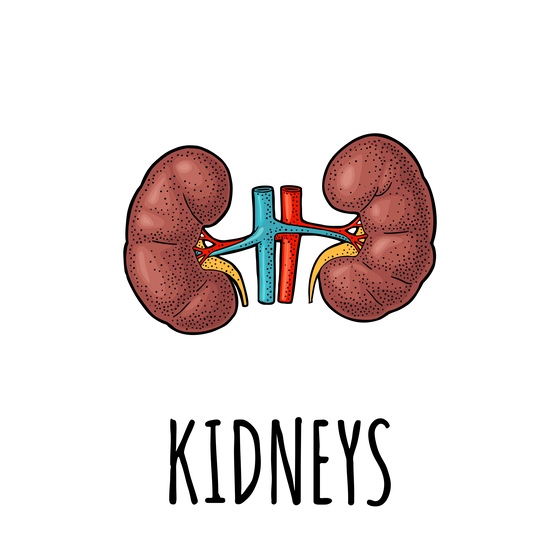Regular kidney monitoring is crucial in maintaining the health and well-being of older adults. As age advances, kidney function naturally decreases, leading to potential complications if not appropriately managed. Retirement communities acknowledge this risk and prioritize kidney health among their residents, incorporating routine health assessments into their care plans.
Role of Kidneys in Our Body
The kidneys are indispensable organs that play several crucial roles in our body. Composed of around a million tiny units called nephrons, these organs perform the complex task of filtering our blood, removing waste and toxins, and ensuring we maintain an optimal balance of electrolytes. Additionally, they help regulate our blood pressure by controlling the volume of blood in our system and also produce a hormone called erythropoietin which stimulates the production of red blood cells.
With the passage of time and progression of age, our kidney function can naturally decrease, exposing older adults to potential health risks. In this context, regular kidney monitoring becomes crucial in older adults to track kidney health and maintain overall wellbeing.
Decline of Kidney Function With Age
As people age, kidneys undergo physiological changes that may affect their function. The kidneys naturally decrease in size and weight, and the number of filtering units, or nephrons, reduces as well. This process, which is part of natural aging, leads to a reduced filtration rate, which can compromise the kidney’s efficiency in filtering toxins and waste from the blood.
Some older adults may also experience reduced blood flow to the kidneys due to arteriosclerosis, further impacting kidney function. In the face of these changes, regular kidney monitoring becomes vital to detect early signs of kidney disease, allowing for timely intervention and management.
Importance of Regular Kidney Monitoring
Monitoring kidney function on a regular basis is critical for older adults to ensure the early detection of kidney disease. If left undiagnosed or untreated, kidney disease can lead to severe complications, including kidney failure. Regular kidney monitoring typically involves blood and urine tests to assess the kidneys’ filtering capacity and detect any irregularities.
Given that kidney disease often develops without causing noticeable symptoms until it’s advanced, consistent monitoring is crucial to ensure timely detection and treatment. By integrating regular kidney monitoring into routine healthcare, older adults can keep track of their kidney health and seek necessary medical intervention when needed.
Symptoms to Watch Out For
While kidney disease can often progress silently, certain symptoms may signal its presence. These could range from generalized symptoms like fatigue, lethargy, and decreased appetite, to more specific symptoms such as frequent urination, especially at night, swollen ankles, puffiness around the eyes, and shortness of breath.
In some cases, people might experience a metallic taste in the mouth or persistent itchiness. It’s important for older adults, and their caregivers, to be aware of these signs. Regular kidney monitoring can help ensure that any changes in kidney health are detected and addressed promptly, even before symptoms start to appear.
How Retirement Communities Support Regular Kidney Monitoring
Retirement communities play a pivotal role in promoting kidney health among their residents. These communities often employ healthcare professionals who can conduct routine checks, identify early signs of kidney disease, and coordinate care with the resident’s healthcare provider. Some retirement communities also provide educational sessions and workshops on kidney health, disease prevention, and management.
These initiatives foster an environment of awareness and proactive health management. The residents are encouraged to participate in regular kidney monitoring, thus ensuring early detection and management of potential kidney issues.
Prevention and Management of Kidney Disease
In addition to regular kidney monitoring, certain lifestyle measures can be instrumental in preventing and managing kidney disease. This includes maintaining a balanced diet, low in salt and processed foods; ensuring regular physical activity; staying adequately hydrated; avoiding excessive consumption of alcohol; and refraining from smoking.
For those already diagnosed with kidney disease, medication adherence and regular follow-ups with the healthcare provider are key. Retirement communities often provide programs and amenities that promote such healthy lifestyle habits among their residents, and provide assistance with medication management and coordination of healthcare services.
The importance of regular kidney monitoring in maintaining the health of older adults cannot be overemphasized. Given the silent progression of kidney disease, routine monitoring is crucial for early detection and intervention. Retirement communities play a significant role in this process, ensuring that their residents receive appropriate health checks and support in managing their kidney health.
By integrating regular monitoring, education, and a healthy lifestyle, it’s possible to maintain good kidney health and wellbeing in our older years. This holistic approach to kidney care in retirement communities provides residents with the best chance for a healthy, quality life in their golden years.







